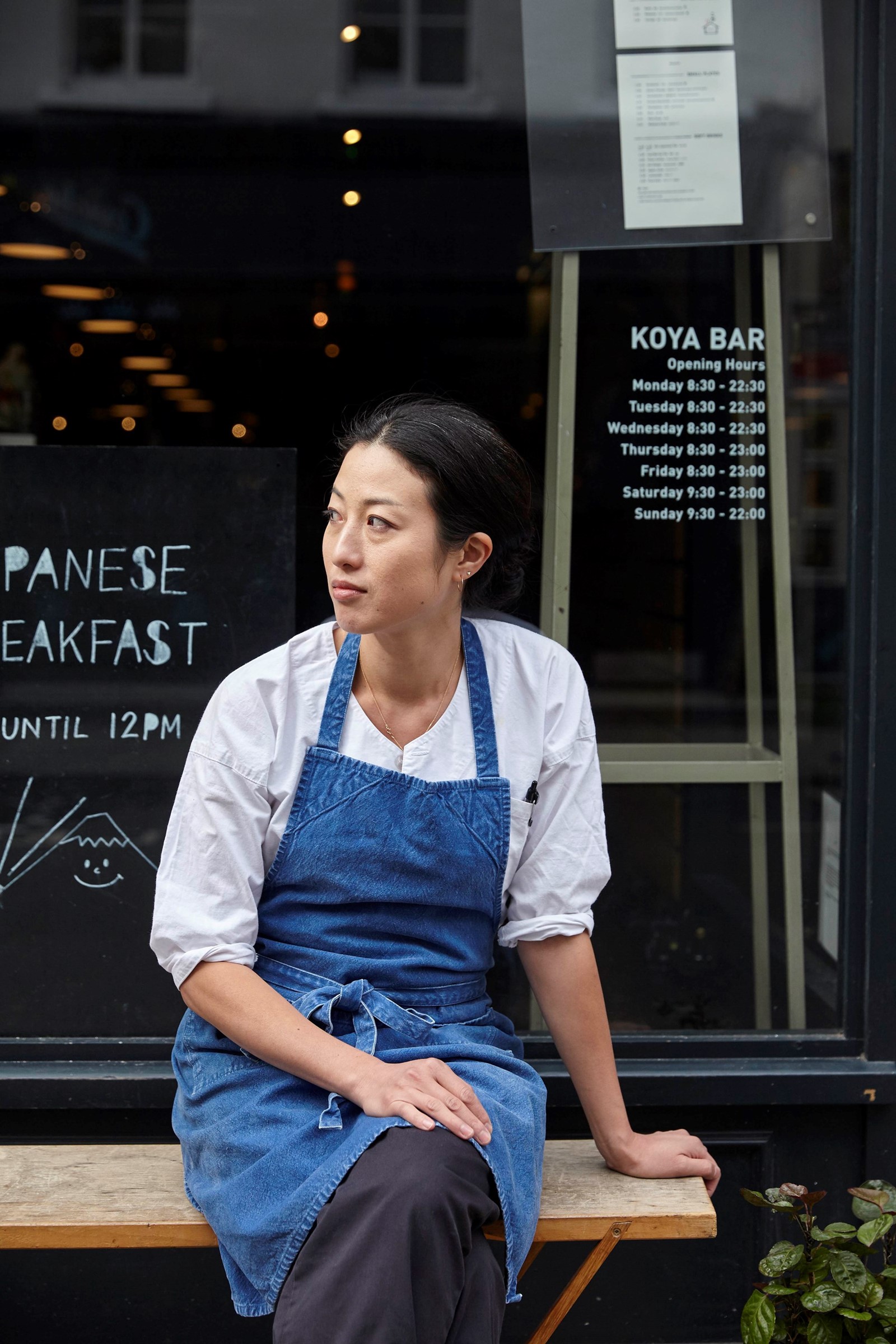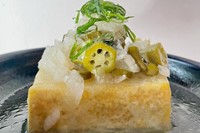AnOther Dish is a recipe and interview series with London-based chefs, spotlighting new openings and beloved, classic restaurants that stand the test of time.
With its pillowy udon noodles, flavoursome dashi (Japanese soup stock), nourishing bowls of donburi, Japanese breakfasts, and moreish small plates (‘umeboshi’ pickled plums, braised pork belly, seaweed salad), Koya has emerged as one of the most quietly confident, reliable and innovative Japanese restaurants in London. First launched as a quaint noodle bar in Soho on Frith Street in 2010, the restaurant’s simple formula – walk-ins only, an open-plan kitchen, and a soothing atmosphere – has since been replicated elsewhere, with new locations opening in Bloomberg Arcade (Koya City, 2017) and Broadway Market (Koya Ko Hackney, 2021).
Shuko Oda, the head chef and co-founder of Koya, grew up between London, Los Angeles and Tokyo; Koya was born from a lack of – and yearning for – genuine, high-grade Japanese cuisine in London. “Every few years our family moved back and forth,” she recalls of her upbringing. “That’s how I started to long for certain things about Japan, and food was definitely a big part of it. There’s a different appreciation you have for things when they’re not readily available.”
Before moving into hospitality, Oda worked on the floor at the legendary, high-concept fashion store Dover Street Market; it was there, at the store’s Rose Bakery, that she met Koya co-founder Junya Yamasaki, who later introduced her to John Devitt (another co-founder). (Today, Oda says that many of her friends she met working in retail now work in restaurants: “It’s customer service, and it’s making someone happy. Food is quite an honest, tactile way of doing that.”) After conceiving the restaurant with her co-founders, Oda spent one long, hot summer in Paris learning how to make dashi and udon at the Japanese restaurant Kunitoraya; her team later landed on the name, Koya – which translates from Japanese into “little house or shed” – for its humble vibe, which is reflected in the restaurant’s arch red logo.
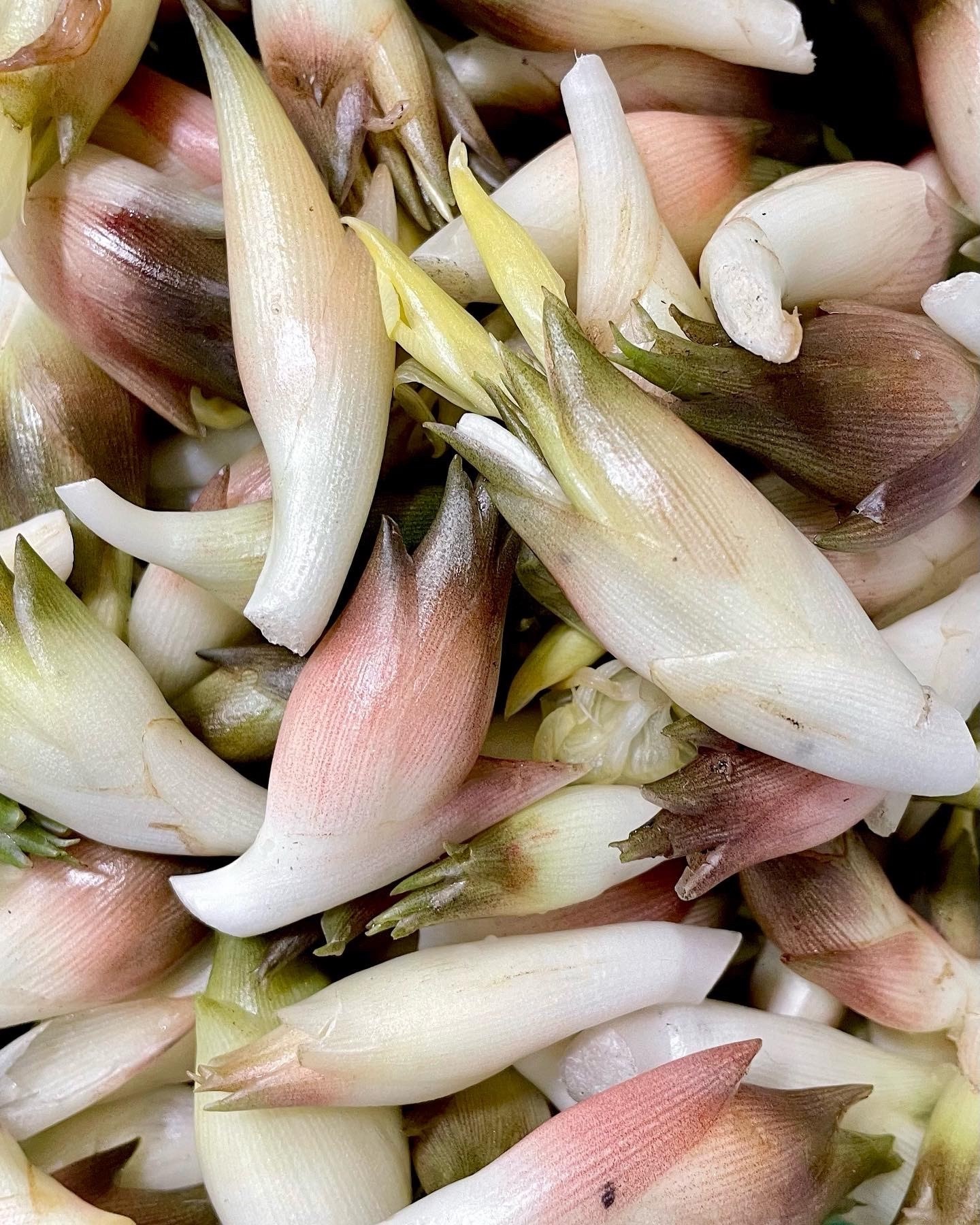
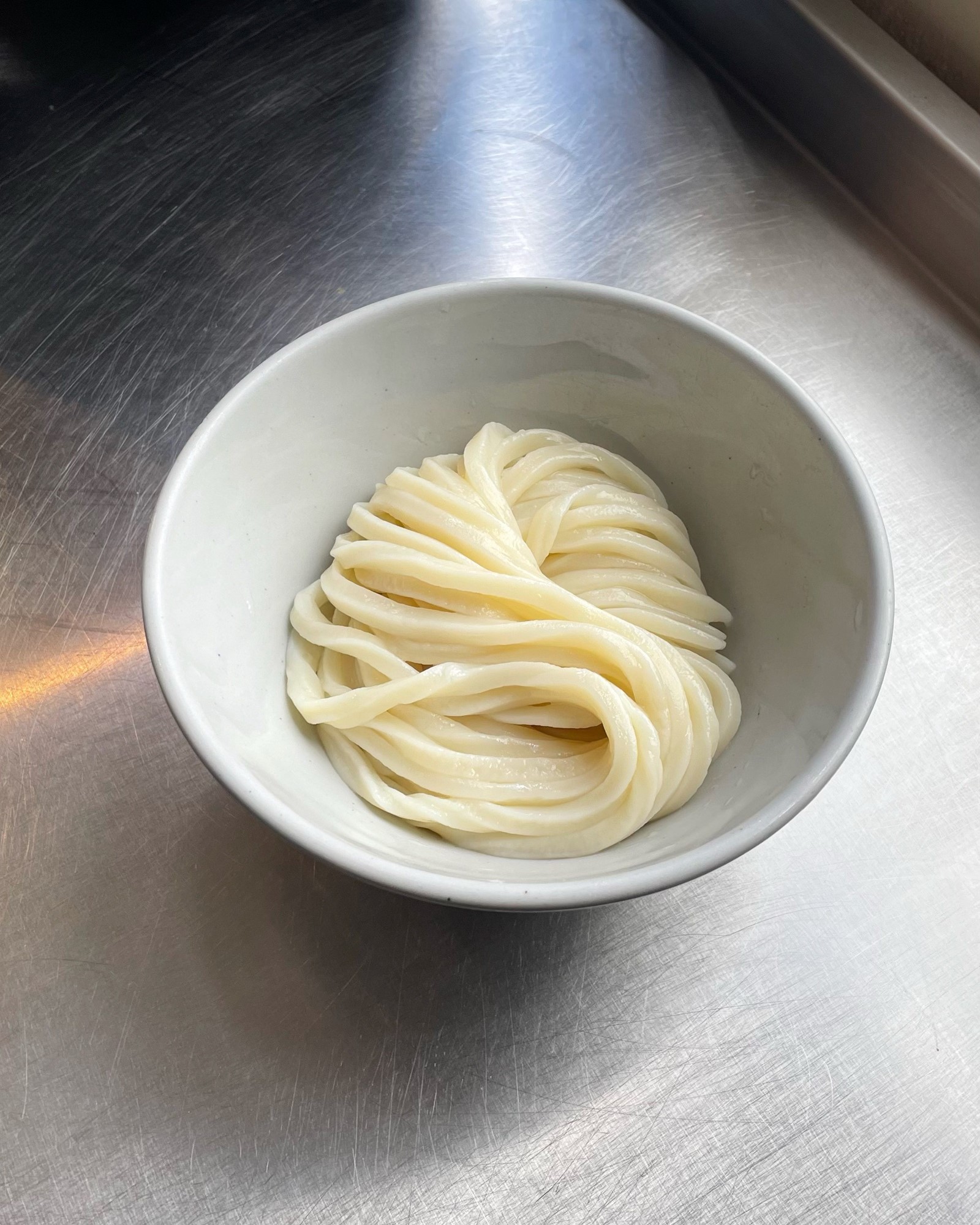
For over a decade, Koya has been lauded for its rotating specials, which are chalked up on the blackboard each day (this summer, there are pickled tomatoes in strawberry vinegar, zingy lemon-kosho caesar salad with fennel and radish, and cured mackerel tartare with apple and kohlrabi). For the specials, Oda asks her chefs to think about what they eat at home, or their favourite meals growing up, and make a quick version of it. The restaurant’s less-is-more ethos lets the ingredients shine, which are often sourced locally from farms in the UK. “We have strong fundamental elements to start with – the noodles and the dashi, which we make fresh every day – and we play around with toppings,” Oda explains.
It’s this self-assured, tried-and-tested approach to cooking which has meant Koya has stood the test of time (14 years and counting), with queues still snaking around the block during mealtimes. Koya Soho is the restaurant I eat at most frequently in London, and one of my favourites to dine at alone; slurping hot dashi at the counter while watching the chefs cook, clouds of steam wafting from pots and pans, makes for a truly meditative dining experience.
Below, Shuko Oda talks about her fridge staples, the best meal she’s ever had, and what people get wrong about Japanese cuisine.
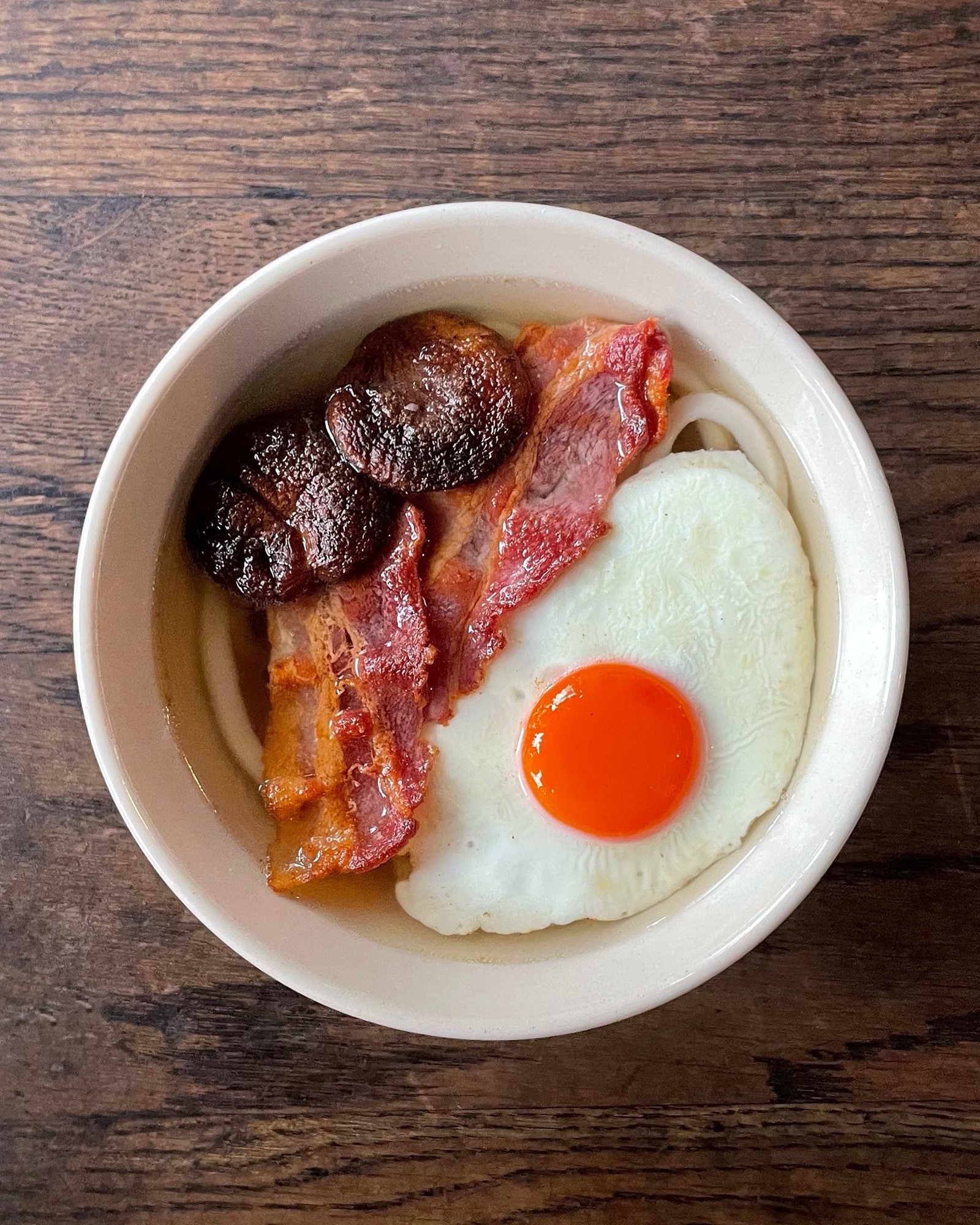
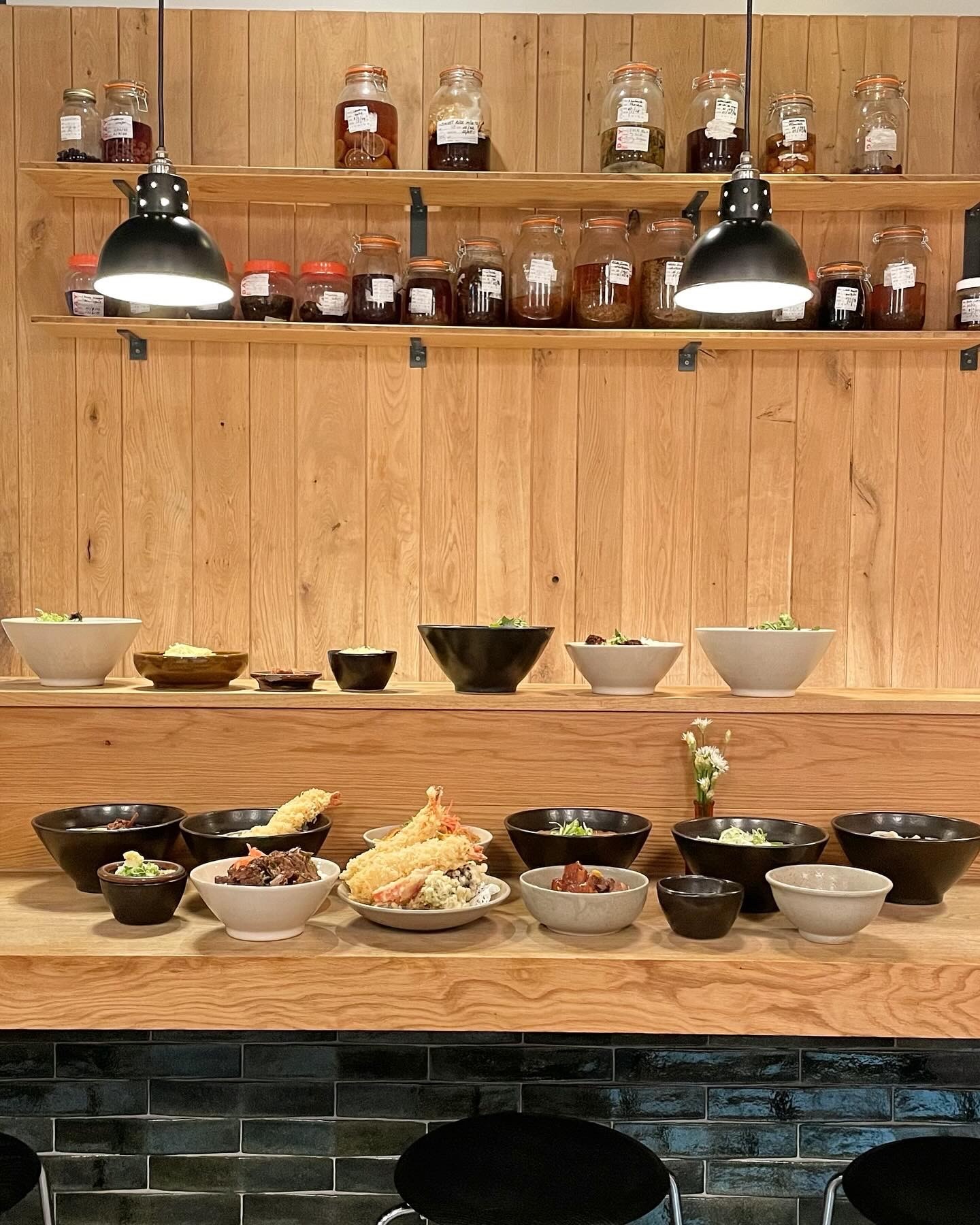
What’s the first meal you remember making? Miso soup.
What are your top three favourite restaurants in London? Leo’s, Royal China, and the bar space at St John Smithfield.
What’s the best and worst thing about the London food scene? Despite Brexit and Covid, everyone is still going out to eat, and everyone still loves restaurants. People who work in restaurants still love working in restaurants. The London food scene has this amazing energy to it that doesn’t really exist anywhere else. The worst thing is that we have to put prices up all the time as an industry to make sure that everyone is happy and can have a nice, decent life.
Are there any emerging chefs in London you like? We worked with Abby Lee recently on a collab udon for Koya Ko Hackney, and it was delicious. Her restaurant Mambow is doing amazingly.
What’s the one dish you eat most at home? I eat natto with rice for breakfast. Sometimes I’ll add soup on the side with a grilled fish, a fried egg, or different pickles on my rice.
What do you do to feel inspired? Eat out, walk around. Just talking and eating with my team is often really inspiring.
What’s the best advice you’ve ever received? “Don’t add, subtract” – Shuko Oda
What are your fridge staples? Natto, kimchi from my neighbour, and different varieties of miso.
What’s the best meal you’ve ever had? A black pepper-roasted crab I ate in San Francisco when I was ten years old. I remember thinking, “Wow, I didn’t realise food can be this good.” It was the first time I went to a restaurant that had a romantic mood to it, and that stayed with me.
What’s your favourite thing about being a chef? I get to meet new people all the time. And I learn about what young people are thinking and doing – everyone in the industry seems to be 27, while I just keep getting older.
What’s one thing everyone should know how to cook? A lot of people can’t cook rice properly. You need to wash it first, then soak it in cold water for anywhere from 45 minutes to overnight. When it’s soaked properly, the rice grains become solid white. That’s when you know it’s ready to be cooked.
What’s your greatest extravagance? Last summer I had a staycation where I went to Tokyo to get away from my kids and be with my friends. We chatted all night long and went for a walk and breakfast the following day. That felt pretty special.
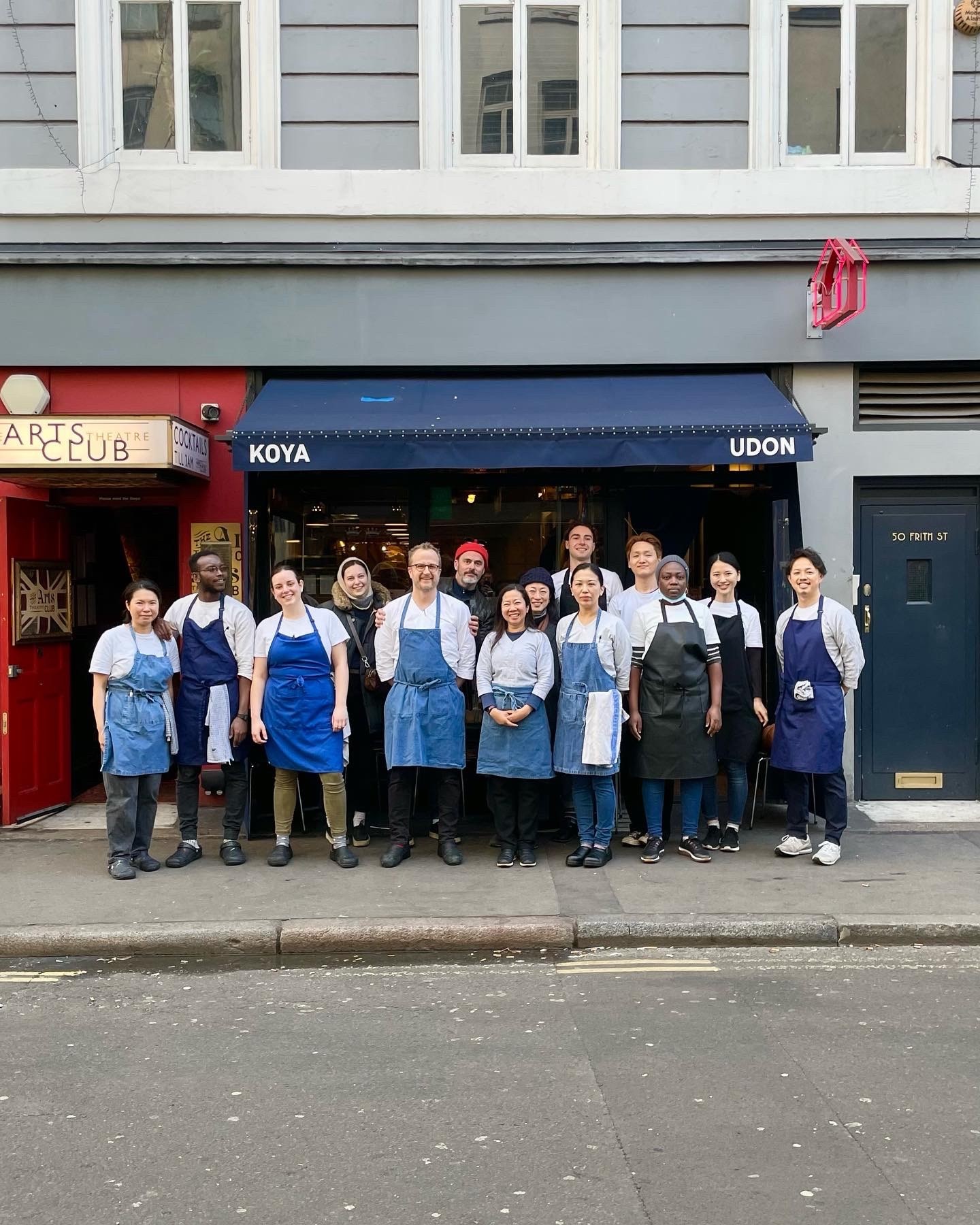
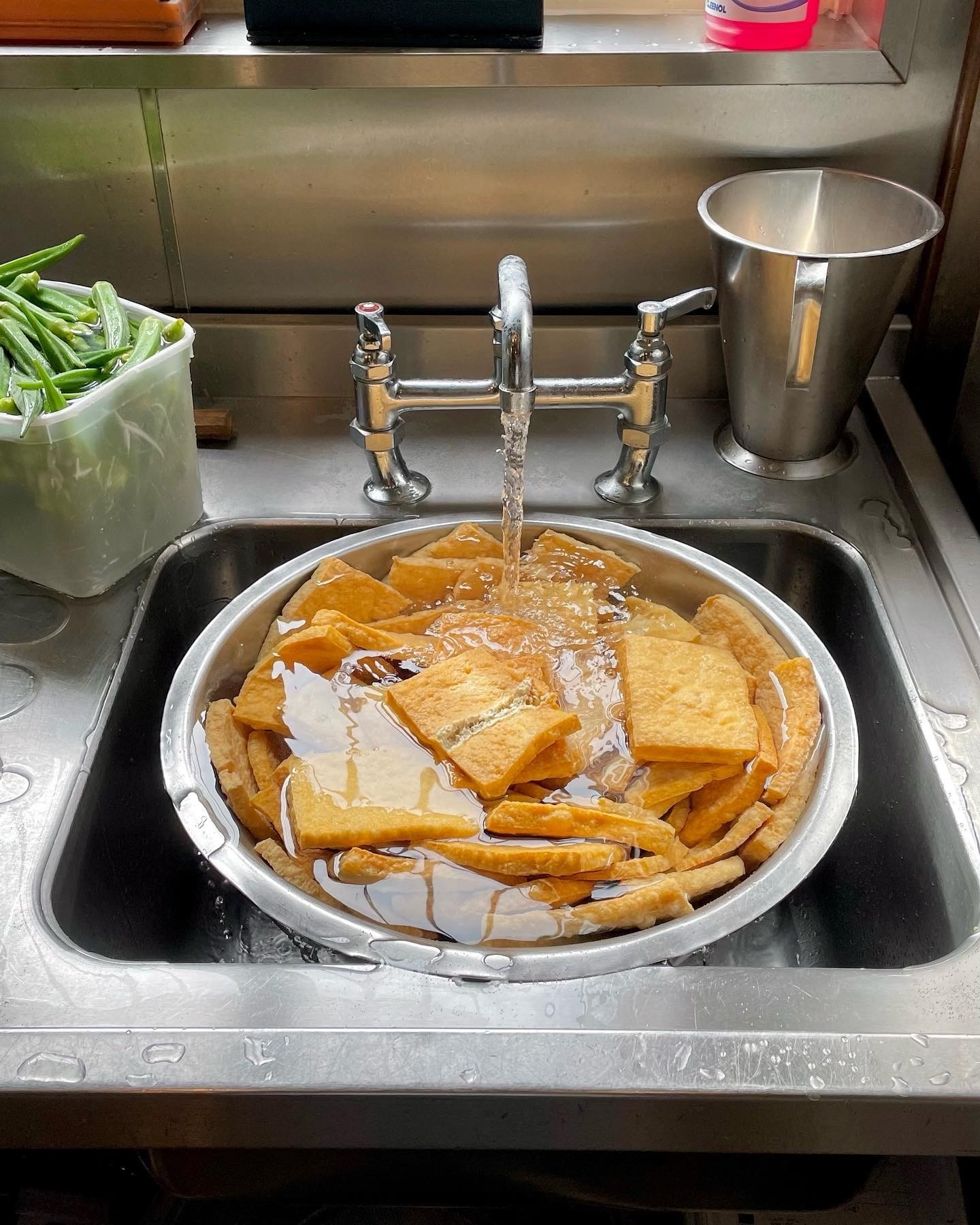
What are your favourite shops in London? The General Store in Peckham. Their selection is excellent, especially their pastries, sweets and cakes. I don’t buy many clothes these days, but there’s a brand I like called Von Sono. Whenever they do an open studio, I get sucked into their world and buy things; that’s what a good shop does.
What’s your favourite item in your wardrobe? I stopped wearing jewellery when I started working in restaurants. But recently, since I’m not in the kitchen as much, my husband bought me this necklace from a vintage shop in Tokyo. I feel a tiny bit more dressed up whenever I put it on.
What’s the best advice you’ve ever received? Don’t add, subtract.
What qualities make for a good chef? The ability to be consistent.
What’s the greatest compliment you’ve ever received? One of our regulars was leaving London and she gave me a card with a hand-drawn bowl of noodles. It said, “Udon know how much I’ll miss you.” That was very sweet.
What’s one thing about Japanese cuisine that gets overlooked? People think Japanese food is so healthy, but we actually use a lot of sugar!
What would be your death row meal? Onigiri rice balls, made with freshly cooked rice.
Where is your favourite place to travel? I would love to go to back to Hawaii. It’s a very slow-moving island, and the people are very relaxed there. I long for it and dream about it, probably because I always grew up in cities.
What’s the most important quality for a restauranteur to make it? Have a balanced team. And always make sure you’re treating your people right.
If you weren’t a chef, what would you be doing? I’d still want to work with my hands. One of my ex-head chefs is now training to be a tiler. I’d do something like that. Maybe I’d be someone who draws signs in shopfronts, or be a visual merchandiser.
Koya London is available to book now.
